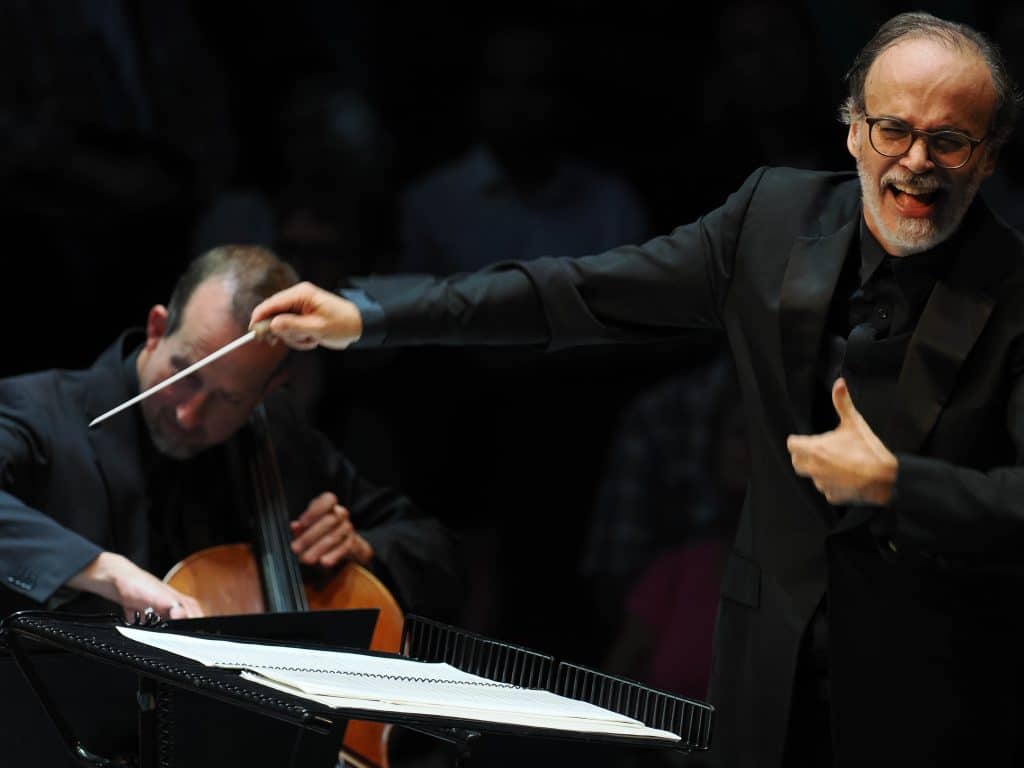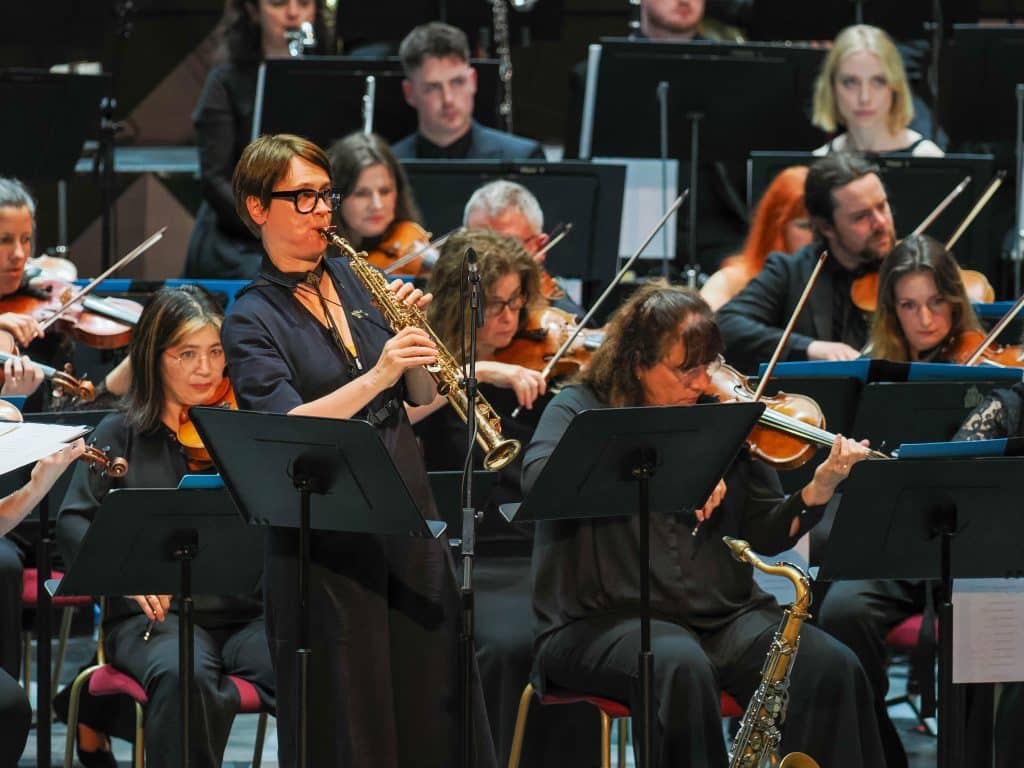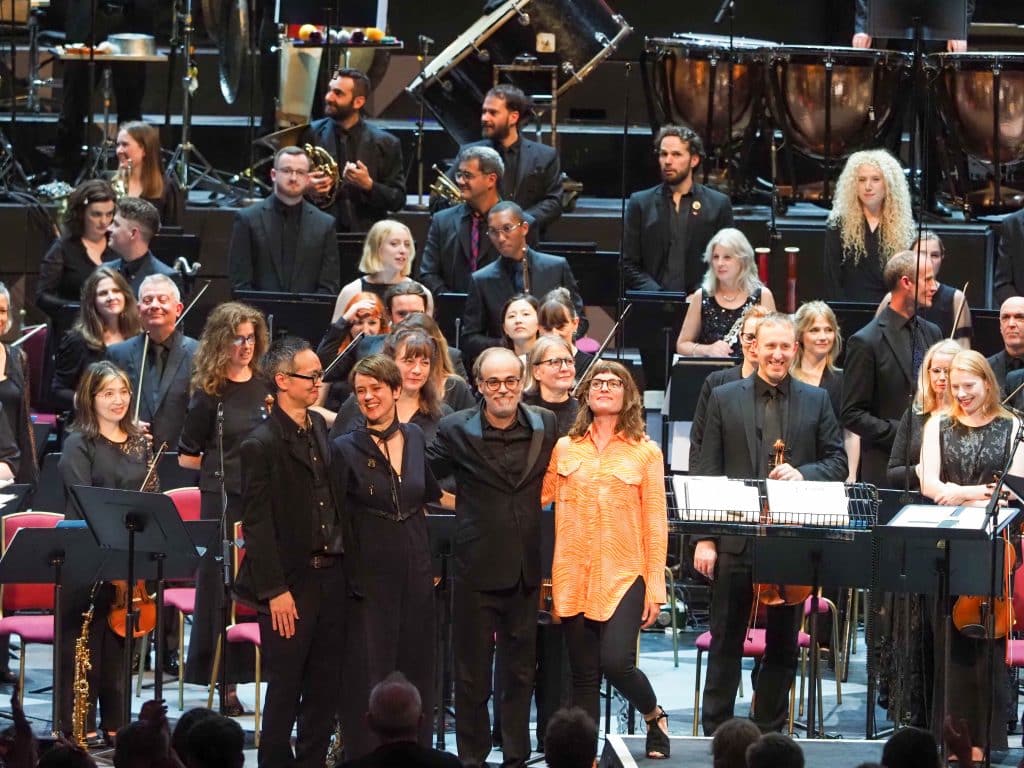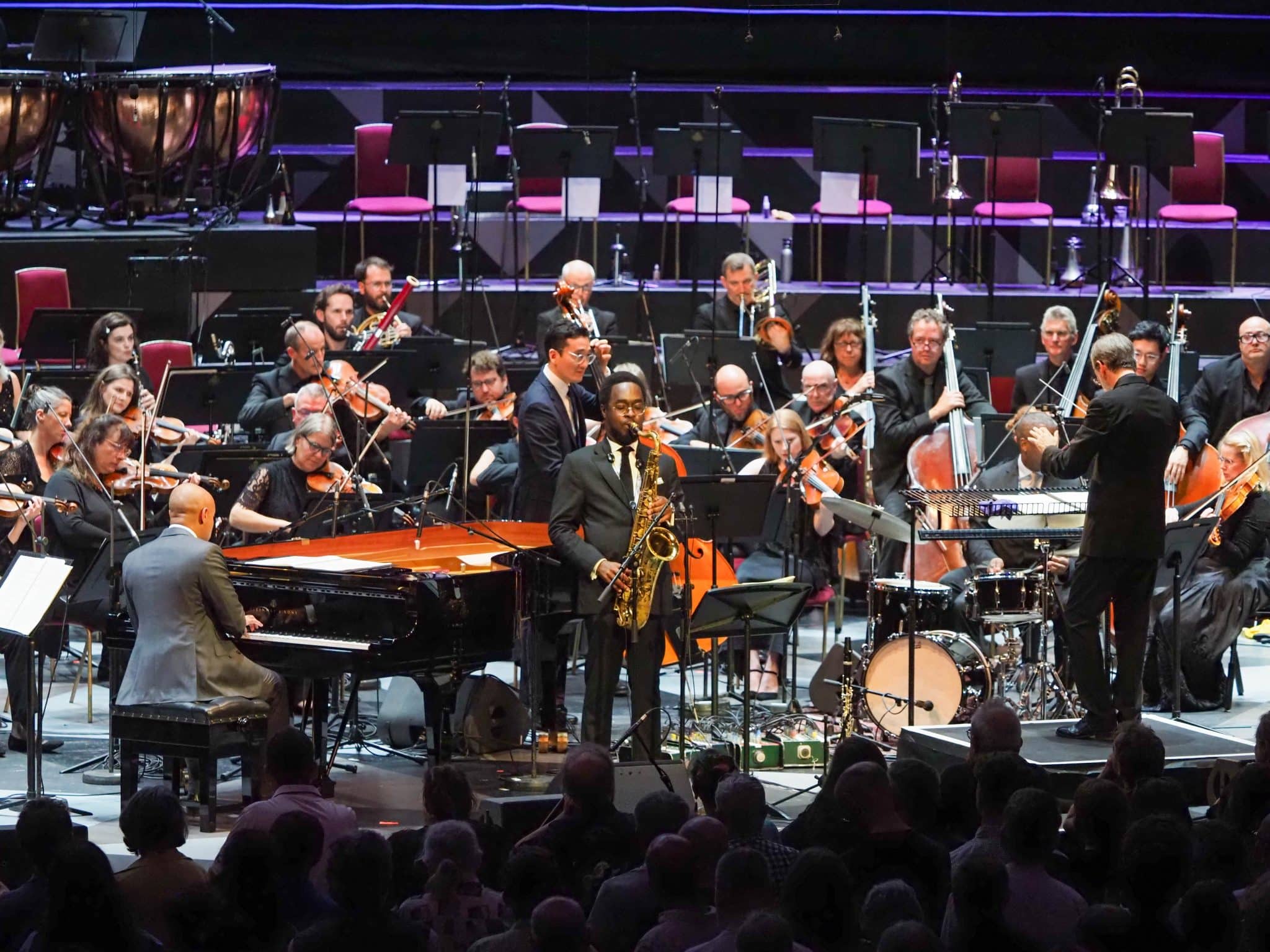Duke Ellington, orch. Morton Gould
Solitude, Mood Indigo, Sophisticated Lady, Caravan
Mary Lou Williams
Zodiac Suite
Anthony Braxton
Composition No. 27. (+46, 59, 63, 146, 147, 151, Language Music)
It is of course in the tradition of the Proms to programme some examples of challenging contemporary music alongside more accessible work, and it has been encouraging to see some of the programming decisions growing bolder in more recent years. Conductor Ilan Volkov has shown a particular dedication to celebrating contemporary music at the Proms, and tonight’s programme feels particularly important not only for acknowledging the history of jazz (and placing a radical composer such as Anthony Braxton within that lineage) but also for celebrating the significant contribution of black composers to the development of 20th Century music.
These are also three great examples of composer-performers, musicians who balanced their pioneering large scale orchestrations with small group work and solo performances. It feels truly significant that this work can now reach audiences most comfortable with the European and western classical and contemporary canon. If only one small section of the audience could have maintained as open a mind as Volkov, but more on that later…

The brief opening Ellington suite provided the audience with Ellington’s beautiful and thoroughly familiar melodies (alongside Caravan, usually credited to Juan Tizol). The strings, perhaps overused, provided lushness and colour, but Morton Gould’s orchestrations felt somewhat tepid and polite, and some aspects of the performance also seemed tentative. It felt as if there were a degree of uncertainty as to how to handle the rhythmic element of the music particularly and, as a result, this lacked the richness, drama and tension of Ellington’s best big band work.
It feels as if Mary Lou Williams has only very recently been receiving due credit for her early and considerable innovations. Unfortunately, her orchestral arrangement of the Zodiac Suite was performed only once in 1946 before being abandoned, but two recent recordings – one by the Umlaut Chamber Orchestra and another by the Aaron Diehl Trio with The Knights – have revitalised this important work. It is the Aaron Diehl Trio who join the BBC Scottish Symphony Orchestra this evening – injecting a valuable sense of playfulness and interaction into this performance, including some genuinely swinging moments. Gregory Hutchinson plays sensitively on drums, but without compromising intensity and joyfulness. This performance felt less like a recontextualisation of jazz for an orchestral setting, and more one where the orchestrations and jazz language were more fully integrated. The Zodiac Suite was never composed together as one unit, but rather assembled retrospectively from a series of individual pieces. As a result, while its underlying themes (exploring the Zodiac signs with pieces dedicated to particular musicians) interconnect, its musical ideas feel widespread and disparate. Williams’ orchestrations navigate this deftly, and the journey, full of imaginative detours, is thrilling. Given the idea is to explore the diverse array of personality characteristics associated with each Zodiac sign, the approach would seem appropriate.

In keeping with the freedom of improvised music, Anthony Braxton’s compositional process not only provides the musicians with a degree of autonomy, but there is also considerable independence afforded to the programmer. As a result, Volkov’s 30-minute performance here is actually an amalgamation of extracts from a number of different Braxton pieces, some of which are delivered faithfully to the original intentions and some of which are re-orchestrated (I particularly enjoyed the strings and percussion section of No. 146, originally composed for 12 flutes, 2 sousaphones and percussion). What is fascinating about this arrangement is the way it experiments with textural range, creating individual smaller ensembles within the orchestra and allowing for powerful, dramatic sections involving the full ensemble. Soloisits James Fei (saxophone), Katherine Young (bassoon) and Ingrid Laubrock (saxophones) all seem to have a thorough understanding of Braxton’s music and processes, and the performance ends with Laubrock and Fei in a genuinely expressive duo.
Young and Fei become actively involved in conducting and directing the orchestra, and there are cards with visualisations and numbers held up. Sometimes Volkov appears to take a more gestural approach. Watching this direction (and the musical response) in the moment is genuinely exciting and stirring. It is a shame, therefore, that the steady steam of walkouts don’t even attempt to engage with this. Yes, this music has its own language that is not for everyone, but this also risks being elitist – it is very possible to enjoy this music simply for its range and breadth of sonic possibility – here are musicians creating unexpected sounds with their instruments, and exploring a vast dynamic range. Braxton’s work actually gets more to the heart of what an orchestral ensemble can create than the Gould orchestrations of Ellington did. Unfortunately, this petulant behaviour inevitably has the effect of being distracting, but the larger portion of the audience that remain rightly conclude the performance with rapturous applause, and it feels like we have all been part of something truly eventful.

Ingrid Laubrock saxophone
James Fei saxophone/conductor
Katherine Young bassoon/conductor
Chris Lewis saxophone/clarinet
Brandon Lee trumpet
Mikaela Bennett soprano
Aaron Diehl Trio with David Wong and Gregory Hutchinson
BBC Scottish Symphony Orchestra
Ilan Volkov conductor
LINK: Listen to this Prom presented by Kate Molleson on BBC Sounds



5 responses
Good review, Dan.
I agree: this was an excellent programme, with clear thematic links.
Braxton has always been an acquired taste – in whichever idiom he chooses – so it was no surprise that there was a steady stream of walkouts. Their loss, in my opinion, as the piece was a truly exciting and engaging piece of orchestral modernism. Edge of your seat stuff, and long-overdue that Braxton gets the Prom treatment. It was a shame that illness kept him away from performing/witnessing it.
Braxtons work is not for most people, in fact, I heard some people describe it as ‘torturous’ and I can understand why. Constant discord and short motifs with no obvious melody. For people with no prior knowledge this may not be what they were expecting or what they like to listen to. It’s not petulant to leave a concert if you hate the music and I wish that I had walked out because it sounded truly awful to my ears. Had I been sitting on the end of the row, I would have left. To some, it is fantastic music and to others it is awful. We all have our own opinions but the reality is that people left because they couldn’t bear to listen anymore. I’d rather people left than started to call out at the musicians.
An excellent review that captures the spirit of the evening admirably. I am not a regular attendee at Prom concerts, but I would like to offer a few words in praise of Thursday’s audience. The early departures during the Braxton pieces in the second half seemed, to me, to be a steady trickle, not a stream. The overwhelming majority remained, listened, and were as warm with the ovations given to Braxton’s music as to Mary Lou Williams’ ‘Zodiac Suite’ earlier in the evening. An audience with open minds and open ears, I would say. And overhearing some of their conversations on the way to High Street Kensington tube after the concert suggested to me that they had been genuinely stimulated by what they had heard. I felt privileged to hear such a wonderful programme of music, and to do so in the company of such an appreciative audience.
I was unable to attend but I am delighted to see such varied and imaginative programming at the proms. Ellington, Williams and Braxton are all jazz royalty, and what a treat it must have been to hear the brilliant New York-based saxophonist Ingrid Laubrock interpreting the latter’s endlessly innovative works. I attended Braxton’s most recent (though pre-pandemic) residency at Cafe OTO which will live long in the memory, so the only regret must be his absence this time.
Didn’t get past the Ellington which I thought did him a terrible disservice and was homogenised nonsense. It sounds like the rest of the programme was an improvement. A shame the beginning was so offputting.